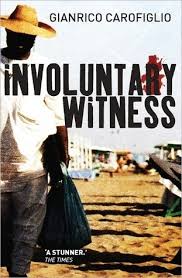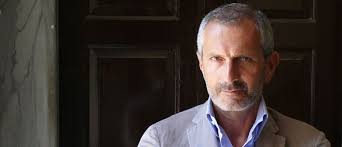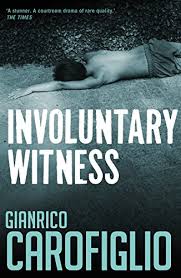Good Reads meta-data is 274 pages, rated 3.90 by 7130 litizens.
Genre: Krimi.
DNA: Italy
Verdict: Nolo contendere.
Tagline: Proving what might not have happened. (Yeah, not punchy.)

When a young boy is found dead near a beach resort one of the usual suspects is arrested and fitted to the crime. Being a Senegalese peddler, the racial stereotypes in the court of public opinion have him convicted before the handcuffs go on.
Hero reluctantly gets involuntarily involved and slowly picks apart the circumstantial case against Peddler. There is much insider detail about the judiciary, the judicial system, and policing in Bari, way down south. The telling is smooth and packed with asides into the humanity of all involved, though mostly that of the lawyer, though not of the police officers who do have a cardboard quality.
The main events are in the court room where Hero casts doubt on the certainties of the prosecution. The means by which that is done is fascinating, a seminar in defence by obfuscation. There is a very great deal of talk. One defence summation is timed at more than two-hours. Could the judges, let alone a jury, cope with that much exposition? (Many social-psychology experiments conclude that a person’s attention span is no more than 20 minutes at a time.) They must have been made of stern stuff and elastic bladders because I am sure students could not withstand a 2 1/2 passive lecture.
Along the way we learn much about the lawyer, his life, his loves, his habits, his car…[TMI]. On the other hand we learn only a little about the Senegalese peddler, apart from the facts that he is a legal immigrant, multi-lingual, and – spoiler – maybe innocent of the alleged crime. That is another thing we do not learn, who committed the crime, how, and why. This story does not follow that Perry Mason trope, that the best way to prove a client innocent is to find the guilty party.
I said ‘maybe’ above because I was not quite sure what I was supposed to think. Nor was I sure whether the police officers’ superficial effort was (1) to calm public opinion with a quick arrest or (2) if they really believed he was guilty, but (3) were too lazy to make a proper investigation, (4) because his being black was sufficient for conviction. Whoops there I go again tying myself into knots over nothing.
Also under the heading of unknown is what lawyer had to say to his ex-wife that was so important. OK, may I blinked.

This is the first in a series by the author, a retired judge who managed a number of mafia trials, and lived to write these tales unlike some others. Both are major achievements.

